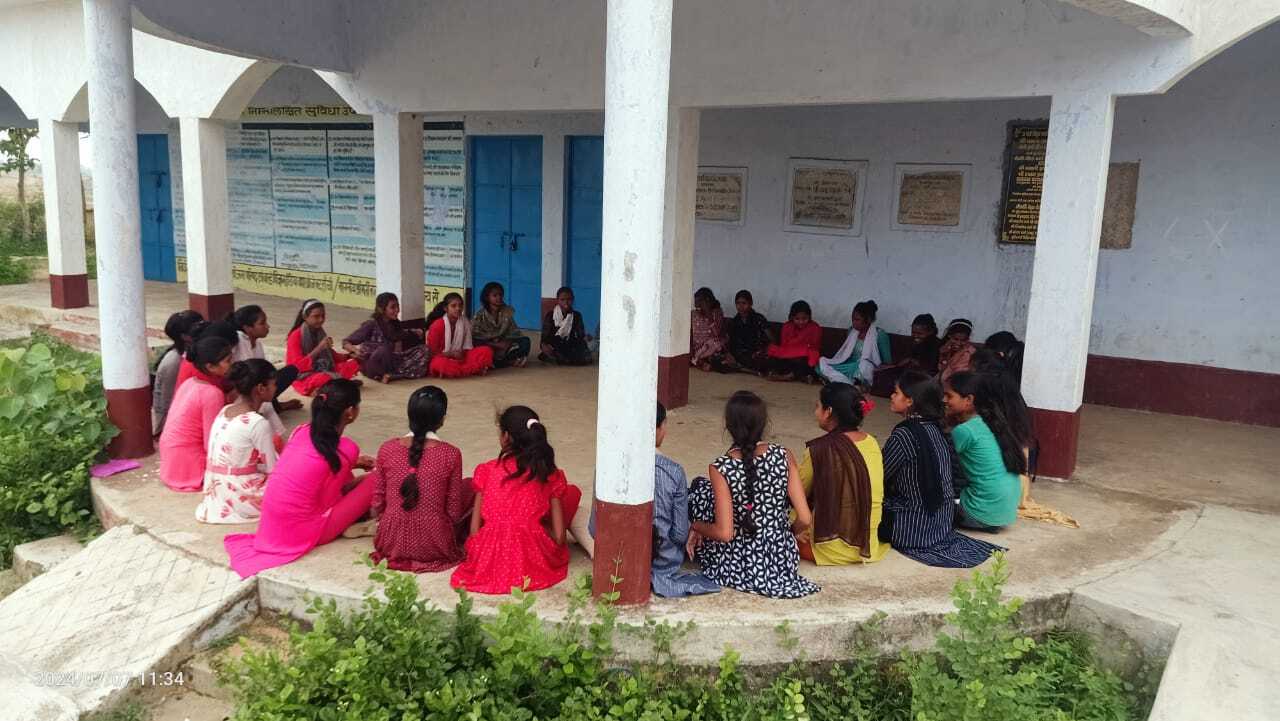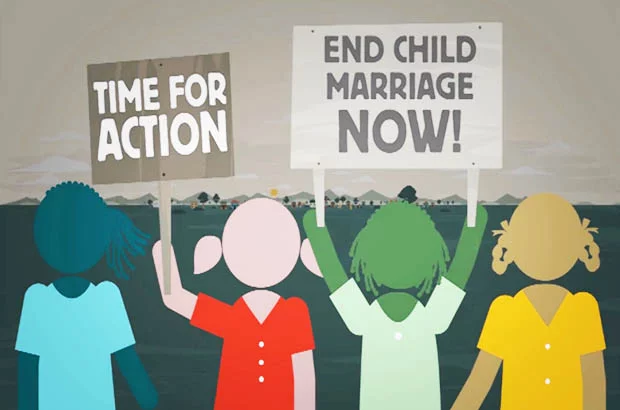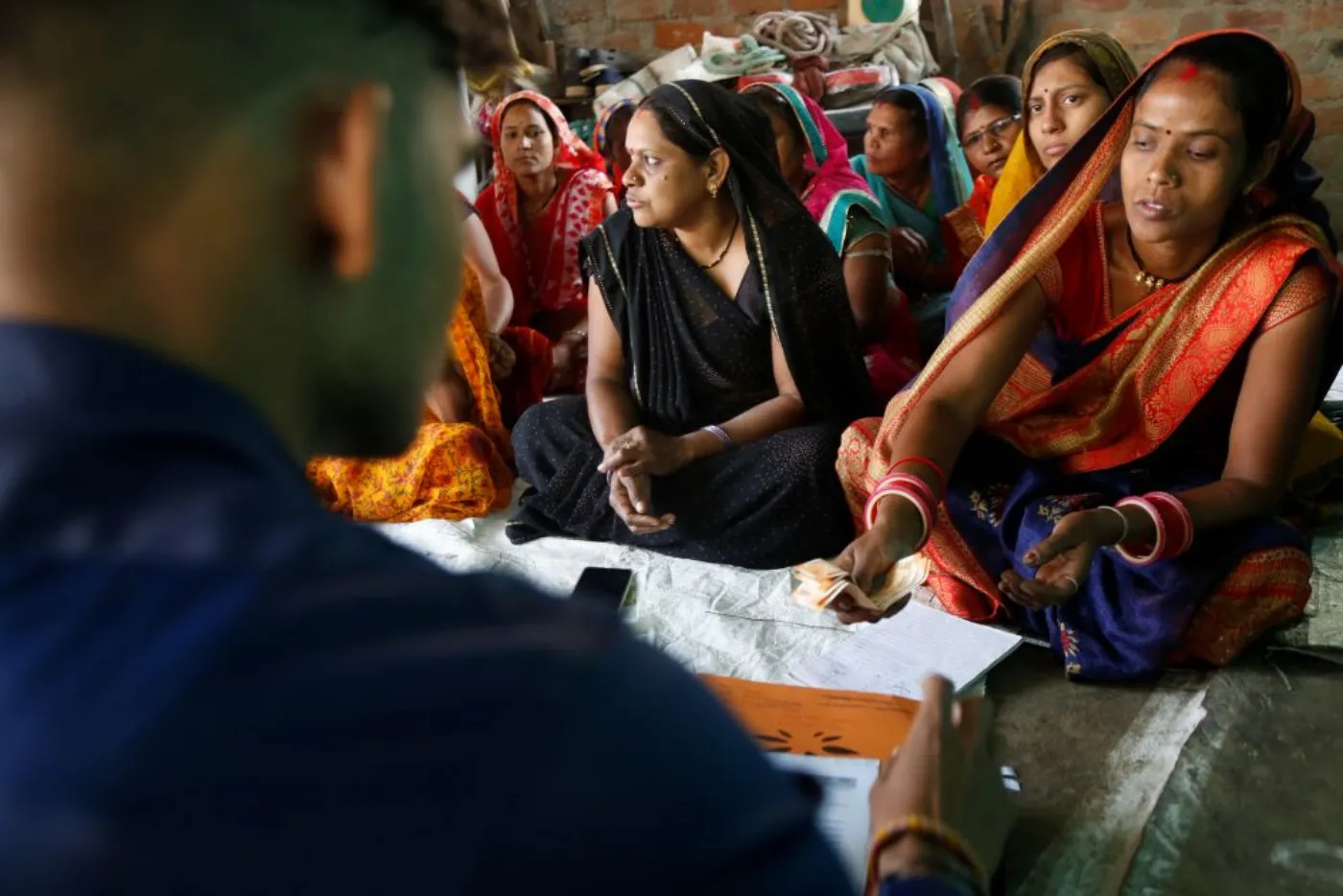An 8-month-long Jharkhand Peer Leaders’ Initiative by ComMutiny – The Youth Collective—in partnership with eight local organisations and the Jharkhand State Livelihood Promotion Society (JSLPS) aims to develop public leadership among 90 peer leaders and 70 changemakers from particularly vulnerable tribal communities in Jharkhand. ComMutiny – The Youth Collective is a group of civil society organisations focused on creating spaces for young people to emerge as leaders of self and social transformation. It aims to build a youth-centric social impact by leveraging the potential of a young nation’s young minds.
ComMutiny-The Youth Collective also runs a collective of 250+ youth engaging organisations across 18 states called the vartaLeap Coalition.
According to a survey report in 2022 by the Union Home Ministry, Jharkhand has the highest rate of child marriages among girls in India. Commutiny’s Jabardast Jagrik-Peer Leaders Program is about nurturing agency among adolescent girls and boys, helping them develop leadership skills to fight against such social evils and build a better future for themselves and their communities.
When invested, these young minds become leaders that inspire change. They take charge of their lives and communities. Not just taking action for a better today but also for a better tomorrow. A tomorrow where social evils that their communities battle with wouldn’t exist. Empowering and advocating social change for the betterment of their communities concentrated in some of the most rural districts of Jharkhand-West Singhbhum, Giridih (UNICEF focus districts), and Pakur. Through the Peer Leaders Program (Jabardast Jagrik), the youth leaders engage in ensuring their emotional well-being and enhancing their understanding of social issues related to Ending Violence Against Children (EVAC), Gender-Based Violence (GBV), Sexual and Reproductive Health and Rights, and Ending Child Marriage (ECM)-most grappling issues in their villages.
Kamla’s lived experiences drive change within herself and the community
Meet Kamla Pan from Baralagia village in West Singhbhum. A peer leader who chose to work on the most pressing issue of her region: child marriage. This practice may seem to have been abolished by the law. However, data speaks otherwise. According to the last census, 3 girls are married every minute! (below 18). Unfortunately, child marriages are still a widely practiced social evil amongst communities, as evidenced by Kamla’s experience. Kamla related the most to the issue due to her own experiences. While speaking to FII, she mentioned,
‘When I was 16-17 and had just completed my matriculation, I was about to get married.‘
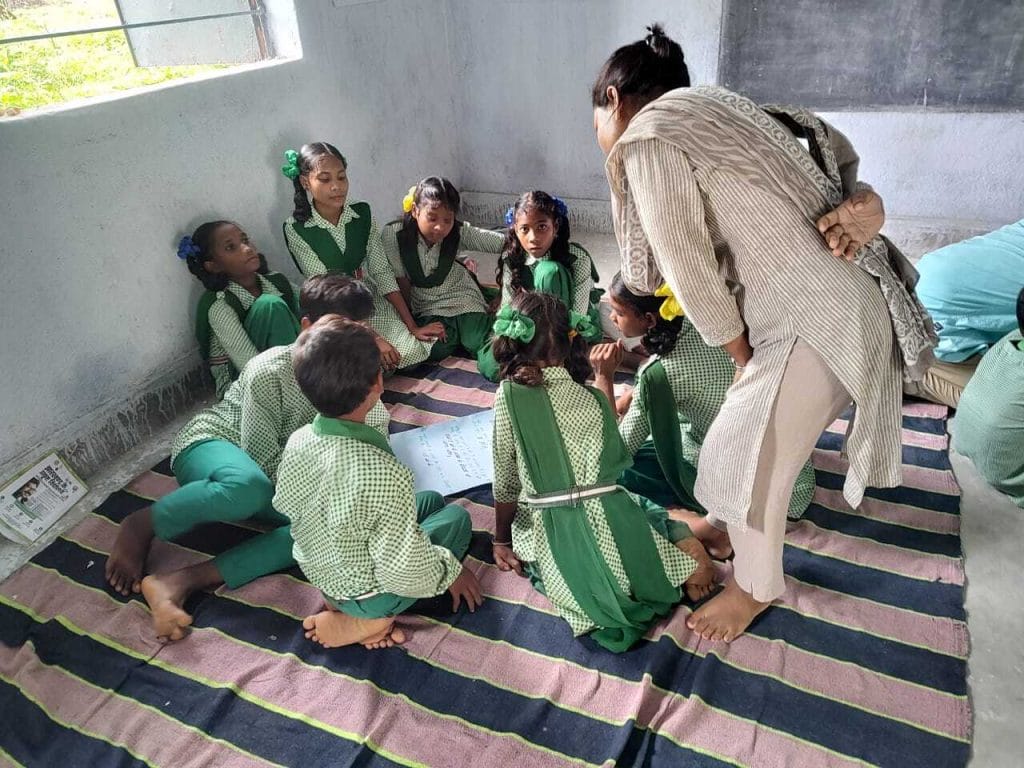
However, Kamla resisted, and here she is now. At the age of 22, she completed her graduation and led with 8 other young people, including other peer leaders, continuously working against transforming mindsets and resisting child marriages in her region. She established a centre in the region with mentorship from Abhijeet of Samiket Jan Vikas Kendra and for the first 6 months worked on training and sessions in her community. In the last month, she conducted a review meeting to understand the progress in her community.
‘My mentors and peer leaders from other organisations also helped me initiate these workshops and sessions. In the beginning, when I started conducting the sessions many parents questioned and raised objections as to why I was doing all this.’
She didn’t get permission at first to conduct these sessions. So, she separately conducted guardian meetings to get the guardians to understand why educating their kids regarding the implementation of such workshops is necessary. The program personally helped Kamla gain confidence within herself and also helped her improve her own time management skills.
Today, incidents of child marriage have drastically reduced in her region. Girls are now continuing their education without the burden of being married in their childhood.
Chakrdhar’s resistance against transforming conservative mindsets
Life was miserable and hopeless for 22-year-old Chakrdhar when he failed his 12th standard exam. However, the peer leaders program brought a glimmer of hope amidst all his despair. Another youth leader like Kamla, Chakrdhar Kumar Mandal, is a resident of Sariya in the Giridih district of Jharkhand. He joined an NGO named Pratigya Foundation. He mentions, ‘I felt shy and uncomfortable addressing such topics, especially with parents.’
Change takes time. It takes effort and, most importantly, consistency. Chakrdhar had it all. Over time, he successfully managed to change his community’s attitudes. Now, they eagerly await his next sessions.
However, despite his initial hesitation and backlash from villagers, Chakrdhar successfully conducted several awareness sessions on sexual and reproductive health rights. Change takes time. It takes effort and, most importantly, consistency. Chakrdhar had it all. Over time, he successfully managed to change his community’s attitudes. Now, they eagerly await his next sessions.
‘This journey not only helped change mindsets but also strengthened my confidence as a peer leader,’ mentions Chakrdhar.
Dolly’s journey towards transforming mindsets on bodily autonomy
Meet Dolly Kumari, a determined 22-year-old from Lohapitti village in Giridih, Jharkhand. Dolly believes her life transformed through education and advocacy. Despite facing intense pressure to marry after completing her twelfth grade, she was resolute in pursuing her dreams. As a peer leader with ComMutiny-The Youth Collective and UNICEF, Dolly focused on addressing critical issues like reproductive health and gender rights in her community. She began her journey with Jago Foundation. Her mentors helped her grow her own sense of knowledge and personal understanding on these issues. After which she started to organise sessions that not only included young people but also their mothers, fostering vital discussions on topics often considered taboo amongst different age groups and generations. It wasn’t easy at first.
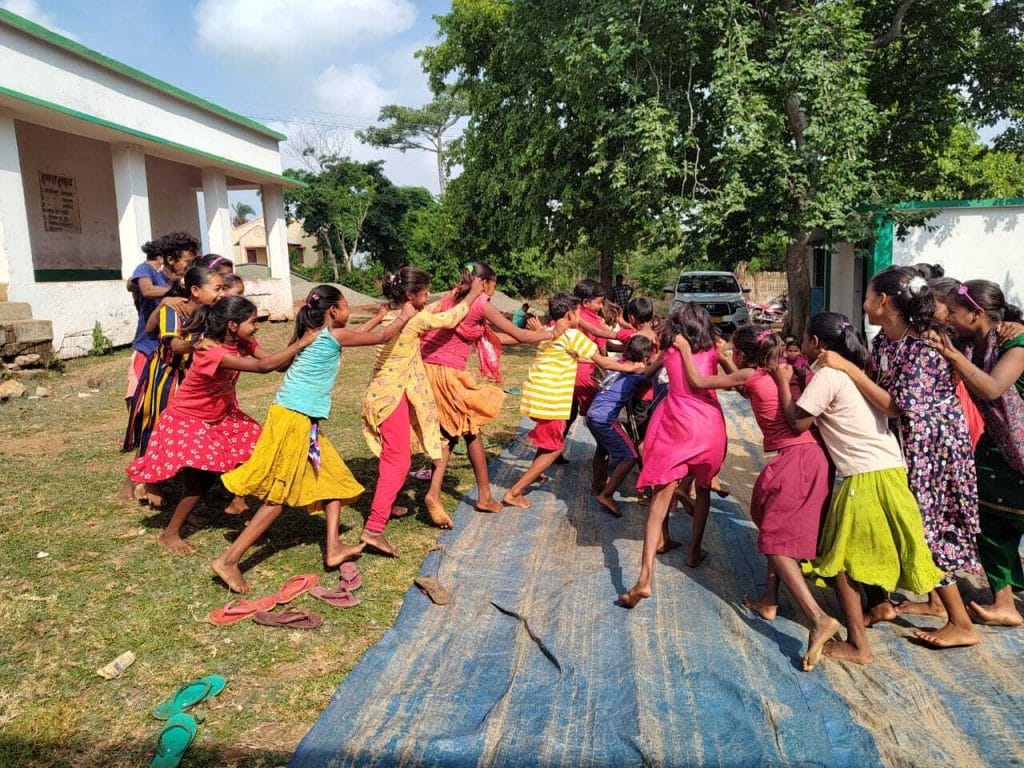
‘I myself couldn’t speak freely about these topics at first. But through this program, I could myself speak freely, have no taboos, and talk about it. Talk about the fact that menstruation is natural and normal. Sex and reproduction are normal. We can talk about it. These are regular biological processes. This helped me gain confidence to thereafter also train around 65-80 people regarding their sexual and reproductive rights along with other peer leaders.’
Through these interactions, Dolly educates her peers about bodily changes, menstrual health, and their rights, becoming a role model for many. Her journey has not only empowered herself but has also inspired countless girls in her village to believe in themselves and strive for their ambitions.
Jyoti’s advocacy against child marriages
In the heart of Gundiposi village in West Singhbhum, 21-year-old Jyoti’s aspirations for higher education faced significant hurdles due to her family’s financial limitations. However, when she was selected as a peer leader by Kula Educational Trust in Tonto, she saw it as a golden opportunity to not only earn but also advocate for change within her community. Embracing her role, Jyoti confronted the harsh realities of child marriage and illiteracy that plague Gundiposi. While speaking to FII, Jyoti mentioned,
‘My region, West Singhbhum, has the highest rate of child marriages. That’s why I chose this topic for my advocacy workshops. Many children are just married off at an early age for dowry and a lot of them can’t even continue their studies after 8th or 10th grade.’
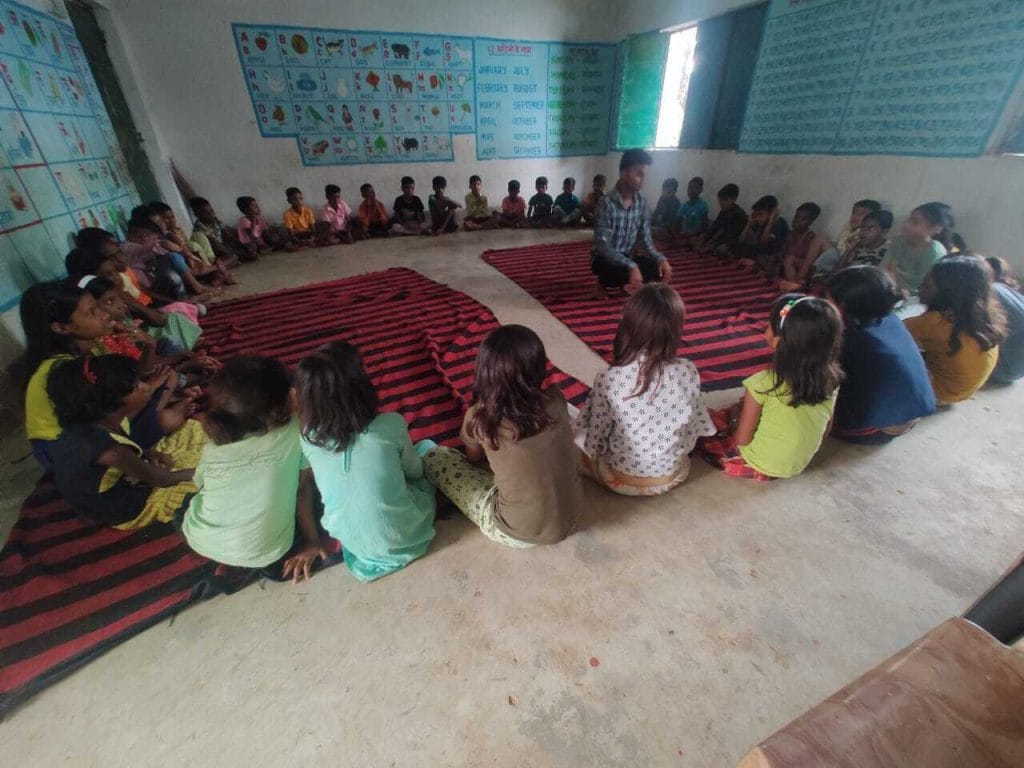
Understanding this pressing issue and the harsh realities of her region, Jyoti reached out to local leaders and women’s groups, seeking their support. Through drawings, games, and other activities, she engaged adolescents of her area matched according to their time schedules, since many of them were working and creating allies, to organise awareness campaigns on child marriage and gender-based violence.
Children of our ages can speak freely to us without getting the feeling of being judged. So, I mobilised children of my age groups and below at first, said Jyoti.
Through peer leadership and training, youth leaders in Jharkhand are paving the way for ground-level change through first-hand experience. Turning Every Youth into a Jagrik and Every Space Nurturing Jagriks: with this spirit in action, the social sector should invest in young minds. Young people are the true agents of change.
Like Kamla, Chakradhar, Dolly, and Jyoti are just a few out of thousands of youth leaders who have found renewed spirits of resistance against the social evils their villages battle with. The list goes on. The Peer Leaders Program is still ongoing in Jharkhand’s Singhbhum and Giridih. Over 9000 adolescent girls and boys have reaped the benefits of the program. It also supports out-of-school adolescents through digital engagement and the Passport to Earning (P2E) program, addressing both immediate needs and space for inclusive changes towards systemic barriers. They have not only enhanced their understanding of issues on ending Gender-Based Violence or Child Marriage but have also mobilised and encouraged their local communities.
With the assistance of women’s groups, school principals, and mentors, they have established a foundation for transforming their communities’ perspectives. Through peer leadership and training, youth leaders in Jharkhand are paving the way for ground-level change through first-hand experience. Turning Every Youth into a Jagrik and Every Space Nurturing Jagriks: with this spirit in action, the social sector should invest in young minds. Young people are the true agents of change. Young minds, when shaped as responsible citizens at an early stage, can also encourage their communities to live by the principles of the Constitution. Hence, providing a platform for the youth to become active and responsible citizens of the country is an asset the nation must utilise up to its fullest potential.
As Jyoti also mentioned, ‘Our generation has a shorter attention span. But we know them very well. We can engage them well through activities and teach them about such pressing social issues.’
Hence, youth leaders can revolutionise communities for the better today and tomorrow by questioning, reasoning, enhancing, and acting against currently prevalent social injustices in their communities.
To know more about ComMutiny-The Youth Collective’s work, visit their website, Instagram, LinkedIn, Youtube, and Facebook.
This article has been published in partnership with ComMutiny and UNICEF Jharkhand.
About the author(s)
As an independent journalist, writer, and aspiring documentary filmmaker, Stuti covers about social and political issues. Interested in development journalism she also highlights issues on human rights, gender, education, unemployment, law and others. She aims to start her own news media initiative in the future to transform the way development is covered and discussed in the news.
